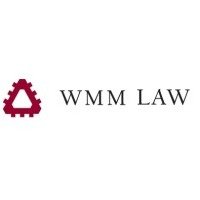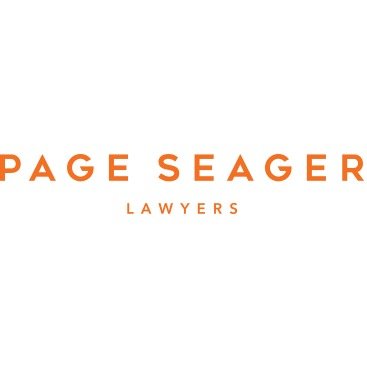Best Structured Finance Lawyers in Hobart
Share your needs with us, get contacted by law firms.
Free. Takes 2 min.
List of the best lawyers in Hobart, Australia
About Structured Finance Law in Hobart, Australia
Structured finance is a complex area of law involving the design and implementation of highly customized financial instruments and transactions. In Hobart, and across Australia, structured finance arrangements are commonly used by corporations, financial institutions, and government bodies to raise capital, redistribute risk, and optimise asset and liability management. This field often encompasses securitisation, derivatives, collateralised debt obligations, and project financing. Legal practice in structured finance ensures these arrangements comply with both local and national regulations, align with best commercial practices, and effectively manage legal risks.
Why You May Need a Lawyer
Engaging a lawyer experienced in structured finance is vital when navigating such specialised transactions. Common scenarios where professional legal advice is necessary include:
- Establishing or investing in a securitisation or debt instrument
- Structuring complex loans or financing arrangements for property, infrastructure, or business expansion
- Negotiating terms in syndicated loans or cross-border transactions
- Assessing regulatory compliance, including disclosure obligations under Australian law
- Addressing tax efficiency and stamp duty implications in financing transactions
- Resolving disputes or defaults under structured finance agreements
- Undertaking due diligence on counterparties and transaction structures
A skilled lawyer can help avoid costly mistakes, reduce exposure to legal risks, and ensure favourable outcomes in structured finance transactions.
Local Laws Overview
Structured finance in Hobart is governed by a combination of local Tasmanian laws and overarching Commonwealth (Australian) laws. Some key legal aspects affecting structured finance include:
- Corporations Act 2001 (Cth): Regulates company behaviour, disclosure, financial services licensing, and directors' duties relevant to structured finance.
- Personal Property Securities Act 2009 (Cth): Oversees the registration and priority of security interests critical in asset-backed financing.
- Australian Securities and Investments Commission (ASIC): Supervises compliance and licensing for entities issuing or dealing in financial products.
- Taxation Law: Covers the Goods and Services Tax (GST), income tax, and stamp duty, particularly for cross-border financing and securitisation arrangements.
- Tasmanian Legislation: Certain transactions may also be affected by state-specific statutes, especially around property law and stamp duty.
Given the interplay between state and national frameworks, legal advice is crucial to identify and comply with all applicable obligations in Hobart-based structured finance transactions.
Frequently Asked Questions
What is structured finance?
Structured finance involves creating customised financial instruments that address specific funding, risk management, and investment objectives, going beyond traditional lending or capital market solutions.
Who typically uses structured finance solutions?
Corporations, financial institutions, and government agencies often use structured finance for large-scale projects, asset securitisation, or to redistribute financial risks.
Do I need a lawyer for a structured finance transaction in Hobart?
Given the complexity of structured finance and local regulatory requirements, it is highly advisable to consult a lawyer to ensure legal and commercial objectives are met.
What are common examples of structured finance products?
Examples include mortgage-backed securities, asset-backed securities, syndicated loans, and structured investment vehicles.
How are structured finance transactions regulated in Hobart?
Such transactions are governed by national laws like the Corporations Act and the Personal Property Securities Act, along with oversight from ASIC and local state laws where relevant.
What risks are involved in structured finance?
Risks may include counterparty default, regulatory non-compliance, changes in tax law, and market volatility affecting structured products.
What role does ASIC play in structured finance?
ASIC regulates the licensing and conduct of financial services and ensures that issuers and advisers act in accordance with Australian financial services laws.
What is securitisation, and why is it popular?
Securitisation is the process of pooling various types of assets and issuing securities backed by them. It is popular because it improves liquidity and risk distribution for originators and investors.
Are there stamp duties on structured finance transactions in Tasmania?
Yes, certain structured finance transactions, particularly those involving property or transfers of underlying assets, may attract stamp duty under Tasmanian law. Legal advice should be obtained for up-to-date guidance.
Can foreign investors participate in structured finance in Hobart?
Foreign investors can participate, though specific FIRB (Foreign Investment Review Board) rules and additional reporting or compliance obligations may apply.
Additional Resources
To learn more about structured finance and obtain up-to-date legal advice, consider these resources and organisations:
- Australian Securities and Investments Commission (ASIC) - primary financial markets regulator
- Tasmanian Department of Treasury and Finance - for information on stamp duties and state taxes
- Australian Prudential Regulation Authority (APRA) - oversight of financial institutions
- Australian Taxation Office (ATO) - for tax implications and compliance in financing arrangements
- Law Society of Tasmania - for referrals to legal practitioners skilled in structured finance
Next Steps
If you are considering a structured finance transaction or facing a legal issue in this area, take the following next steps:
- Compile all relevant documents, such as transaction details, contracts, and correspondence
- Make a list of key objectives, concerns, and questions you want answered
- Identify and contact a law firm or lawyer in Hobart with expertise in structured finance law
- Arrange an initial consultation to discuss your situation and receive tailored legal advice
- Stay informed about ongoing regulatory changes affecting your transaction
Taking early and informed action will help safeguard your interests and contribute to the success of your structured finance project in Hobart, Australia.
Lawzana helps you find the best lawyers and law firms in Hobart through a curated and pre-screened list of qualified legal professionals. Our platform offers rankings and detailed profiles of attorneys and law firms, allowing you to compare based on practice areas, including Structured Finance, experience, and client feedback.
Each profile includes a description of the firm's areas of practice, client reviews, team members and partners, year of establishment, spoken languages, office locations, contact information, social media presence, and any published articles or resources. Most firms on our platform speak English and are experienced in both local and international legal matters.
Get a quote from top-rated law firms in Hobart, Australia — quickly, securely, and without unnecessary hassle.
Disclaimer:
The information provided on this page is for general informational purposes only and does not constitute legal advice. While we strive to ensure the accuracy and relevance of the content, legal information may change over time, and interpretations of the law can vary. You should always consult with a qualified legal professional for advice specific to your situation.
We disclaim all liability for actions taken or not taken based on the content of this page. If you believe any information is incorrect or outdated, please contact us, and we will review and update it where appropriate.









